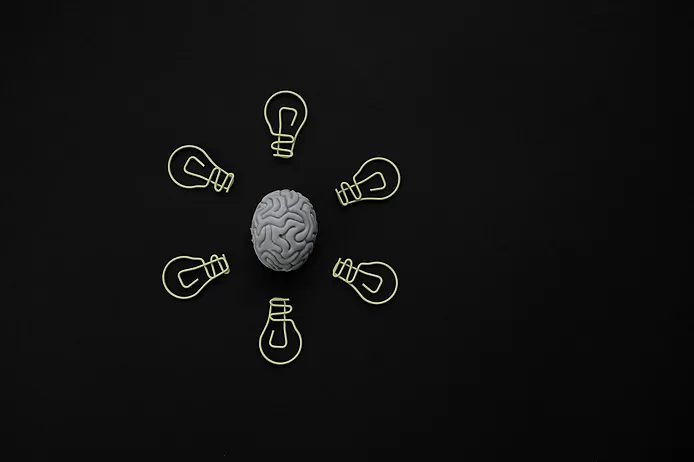Mental health conditions such as depression, anxiety, and eating disorders are often misunderstood. One of the most damaging misconceptions is that people can simply “snap out of it” or “think more positively.” But mental illness is not a failure of willpower—it is a physiological condition rooted in brain chemistry.
When we understand the biology behind mental health, we begin to see these conditions for what they truly are: real, treatable medical issues. One important piece of the puzzle lies in the study of neurotransmitters, the brain’s chemical messengers.
What Are Neurotransmitters?
Neurotransmitters are chemicals in the brain that help transmit signals between nerve cells. They influence nearly every aspect of our lives, including mood, sleep, energy, appetite, motivation, and our ability to handle stress. For our brains to function properly, neurotransmitter levels need to stay in balance.
When there is too much or too little of a certain neurotransmitter, symptoms of mental health disorders can emerge. One of the most common causes of imbalance is chronic stress—something many of us experience due to work demands, trauma, life changes, or financial pressure.
Key Neurotransmitters That Affect Mental Health
Here are some of the most important neurotransmitters related to mood and mental health:
-
Serotonin
Helps regulate mood, sleep, appetite, and pain. Low serotonin is often linked to depression and anxiety. -
Dopamine
Plays a role in motivation, movement, and the brain’s reward system. Imbalances can lead to low energy or difficulty feeling pleasure. -
Norepinephrine
Affects attention, focus, energy levels, and response to stress. It also supports learning and dreaming. -
GABA (Gamma-Aminobutyric Acid)
Acts as a calming chemical in the brain, helping to reduce anxiety, fear, and overstimulation.
When even one of these neurotransmitters is off-balance, your emotional and physical well-being can be significantly impacted.
Neuroplasticity: How the Brain Adapts
One of the brain’s most powerful traits is neuroplasticity—its ability to reorganize and rewire itself in response to experience. Every time we repeat a behavior, whether healthy or unhealthy, the brain strengthens those corresponding neural pathways.
This means if you’ve been consistently lacking sleep, eating poorly, isolating, or avoiding physical activity, the brain adapts by reinforcing those habits. Over time, those circuits become your brain’s default mode.
The Good News: Change Is Possible
Because of neuroplasticity, the brain can also form new, healthier pathways when we start making positive changes. It’s often said that it takes 21 days to form a new habit—and there’s science behind that. This is the approximate time needed for the brain to begin making lasting changes in response to repeated behavior.
So if you’re feeling stuck or hopeless, remember: You could be just a few weeks away from feeling better.
Steps You Can Take to Support Healthy Brain Chemistry
While medication and therapy are important for many, lifestyle changes can also play a powerful role in regulating neurotransmitters and improving mental health. Here are some actionable steps you can take:
1. Move Your Body
Exercise increases dopamine and serotonin levels. Just 15 minutes of walking, stretching, or yoga twice a day can make a big impact.
2. Eat for Brain Health
Cutting down on junk food, processed sugars, and soda while increasing whole foods like fruits, vegetables, and proteins can significantly improve mood and energy.
3. Stay Socially Connected
Spending time with people you care about triggers the release of oxytocin and other “feel-good” chemicals, helping you feel more supported and less alone.
4. Give Back to Others
Acts of kindness and volunteering can stimulate dopamine and serotonin, boosting your own mood while helping others.
5. Try Something New
Challenging yourself with a new skill or hobby stimulates the brain and helps create new, positive pathways that support long-term mental wellness.
Mental Illness Is Biological—Not a Moral Failing
It’s important to remember that mental illness is often rooted in a combination of genetic, environmental, and biological factors. Many people are predisposed to neurotransmitter imbalances through their genes. Others develop them in response to prolonged stress or trauma.
Mental illness is not your fault—and it’s not something to be ashamed of. Just like any physical health issue, it requires support, care, and treatment. And just like physical healing, recovery from mental health challenges takes time and consistency.
You’re Not Alone
Understanding the science of neurotransmitters helps to break down stigma and reinforce the truth: mental health issues are real, valid, and treatable. Whether you are taking the first step toward healing or looking to maintain your progress, remember that you don’t have to do it alone.
A therapist can walk beside you as you build healthier habits, explore treatment options, and rewire your brain for better mental health. The journey isn’t easy—but it is possible.
There is hope. Your brain can change. And you can feel better—one step, one habit, and one day at a time.


